Jeep Compass vs VW ID.4 – Differences & prices compared
Two cars, one duel: Jeep Compass meets VW ID.4.
Which one wins in performance, efficiency and value for money? Find out now!
Costs and Efficiency:
Price and efficiency are often the first things buyers look at. Here it becomes clear which model has the long-term edge – whether at the pump, the plug, or in purchase price.
Jeep Compass has a hardly perceptible advantage in terms of price – it starts at 34200 £, while the VW ID.4 costs 34600 £. That’s a price difference of around 372 £.
In terms of energy consumption, the advantage goes to the VW ID.4: with 15.60 kWh per 100 km, it’s slightly more efficient than the Jeep Compass with 17.50 kWh. That’s a difference of about 1.90 kWh.
As for range, the VW ID.4 performs to a small extent better – achieving up to 569 km, about 69 km more than the Jeep Compass.
Engine and Performance:
Power, torque and acceleration are the classic benchmarks for car enthusiasts – and here, some clear differences start to show.
When it comes to engine power, the VW ID.4 has a distinct edge – offering 340 HP compared to 213 HP. That’s roughly 127 HP more horsepower.
In acceleration from 0 to 100 km/h, the VW ID.4 is decisively quicker – completing the sprint in 5.40 s, while the Jeep Compass takes 8.50 s. That’s about 3.10 s faster.
In terms of top speed, the Jeep Compass performs slight better – reaching 188 km/h, while the VW ID.4 tops out at 180 km/h. The difference is around 8 km/h.
There’s also a difference in torque: VW ID.4 pulls significantly stronger with 679 Nm compared to 345 Nm. That’s about 334 Nm difference.
Space and Everyday Use:
Cabin size, boot volume and payload all play a role in everyday practicality. Here, comfort and flexibility make the difference.
Both vehicles offer seating for 5 people.
In curb weight, Jeep Compass is slightly lighter – 1667 kg compared to 1975 kg. The difference is around 308 kg.
In terms of boot space, the Jeep Compass offers hardly perceptible more room – 550 L compared to 543 L. That’s a difference of about 7 L.
In maximum load capacity, the VW ID.4 performs hardly perceptible better – up to 1575 L, which is about 14 L more than the Jeep Compass.
Who comes out on top?
Overall, the VW ID.4 shows itself to be leaves the rival little chance and secures the title of DriveDuel Champion.
It convinces with the more balanced overall package and proves to be the more versatile choice for everyday use.
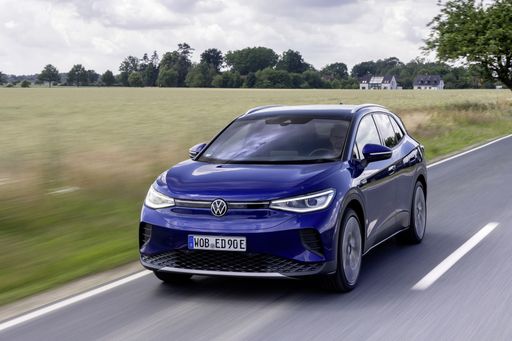 @ Volkswagen AG / VW Media
@ Volkswagen AG / VW Media
VW ID.4
Jeep Compass
The Jeep Compass packs classic Jeep styling with a surprisingly composed demeanor, equally at home turning heads in the city or tackling a weekend dirt track. Inside it's a pragmatic, user-friendly compact SUV that prioritizes comfort and versatility — a smart pick if you want a dose of adventure without giving up everyday sense.
details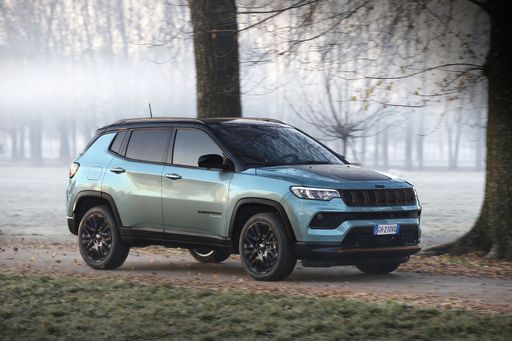 @ Jeep / Stellantis Media
@ Jeep / Stellantis Media
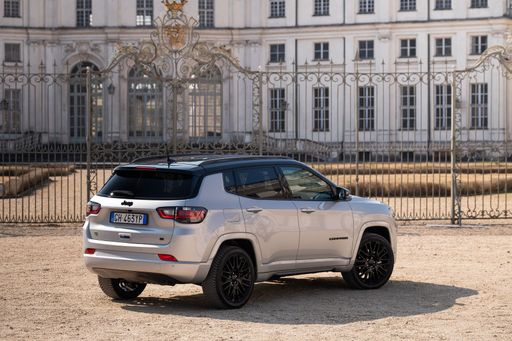 @ Jeep / Stellantis Media
@ Jeep / Stellantis Media
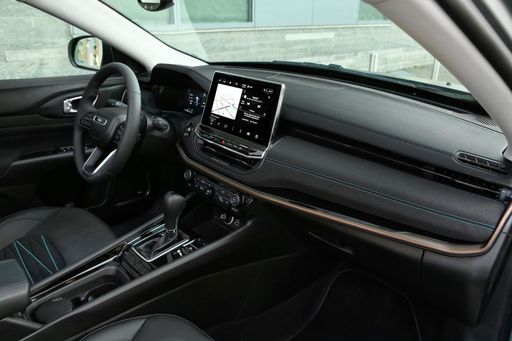 @ Jeep / Stellantis Media
@ Jeep / Stellantis Media
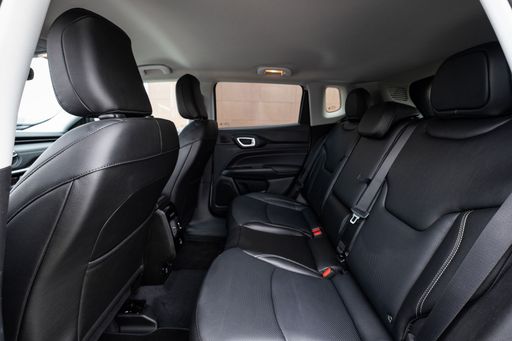 @ Jeep / Stellantis Media
@ Jeep / Stellantis Media
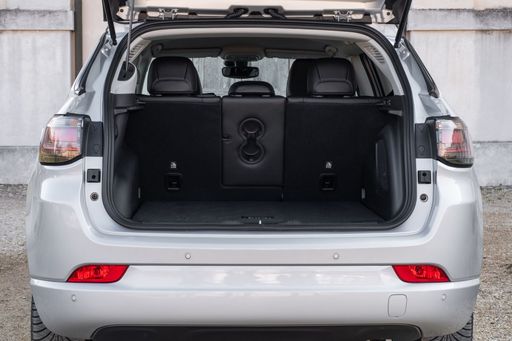 @ Jeep / Stellantis Media
@ Jeep / Stellantis Media
VW ID.4
The VW ID.4 is a calm, roomy electric SUV that turns everyday driving into a quietly confident experience, its practical packaging and smooth manners tailored perfectly for family life. Volkswagen's solid build and intuitive interior tech mean you get electric practicality without the sci‑fi theatrics, making the ID.4 a sensible, surprisingly likable choice for most buyers.
details @ Volkswagen AG / VW Media
@ Volkswagen AG / VW Media
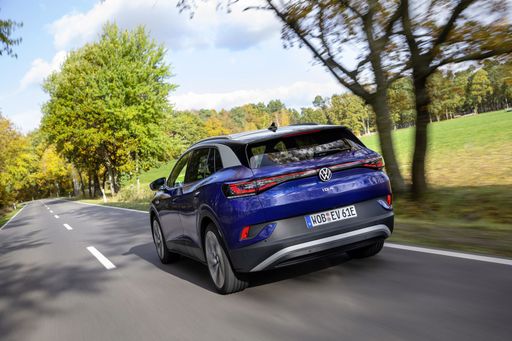 @ Volkswagen AG / VW Media
@ Volkswagen AG / VW Media
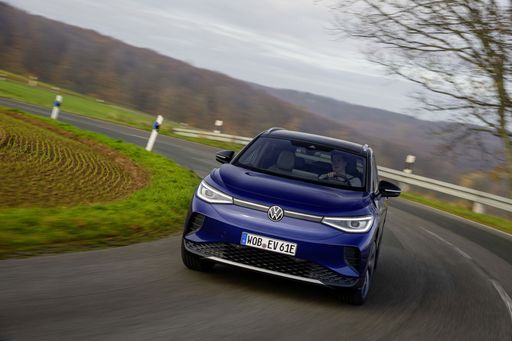 @ Volkswagen AG / VW Media
@ Volkswagen AG / VW Media
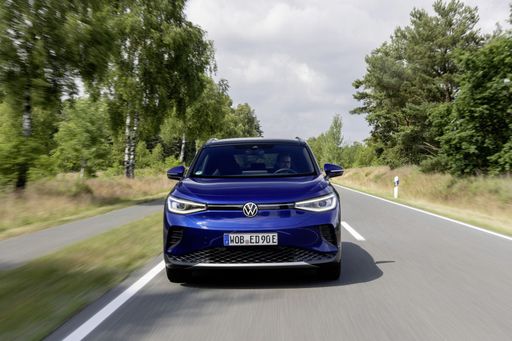 @ Volkswagen AG / VW Media
@ Volkswagen AG / VW Media
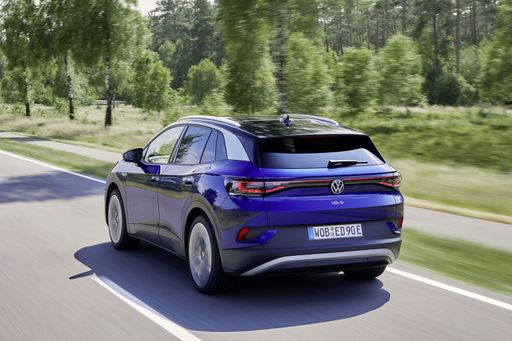 @ Volkswagen AG / VW Media
@ Volkswagen AG / VW Media
 @ Volkswagen AG / VW Media
@ Volkswagen AG / VW Media
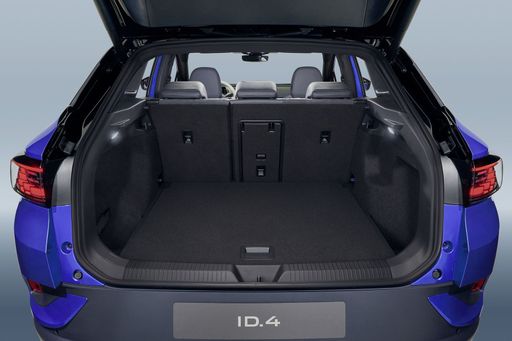 @ Volkswagen AG / VW Media
@ Volkswagen AG / VW Media
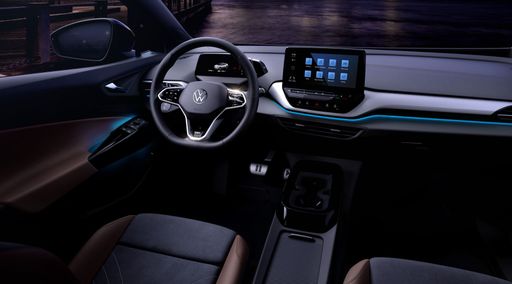 @ Volkswagen AG / VW Media
@ Volkswagen AG / VW Media
 @ Jeep / Stellantis Media
@ Jeep / Stellantis Media
|
 @ Volkswagen AG / VW Media
@ Volkswagen AG / VW Media
|
|
|
|
Costs and Consumption |
|
|---|---|
|
Price
34200 - 43200 £
|
Price
34600 - 47200 £
|
|
Consumption L/100km
5.8 - 5.9 L
|
Consumption L/100km
-
|
|
Consumption kWh/100km
17.50 kWh
|
Consumption kWh/100km
15.6 - 17 kWh
|
|
Electric Range
500 km
|
Electric Range
356 - 569 km
|
|
Battery Capacity
74 kWh
|
Battery Capacity
52 - 77 kWh
|
|
co2
0 - 133 g/km
|
co2
0 g/km
|
|
Fuel tank capacity
55 L
|
Fuel tank capacity
-
|
Dimensions and Body |
|
|---|---|
|
Body Type
SUV
|
Body Type
SUV
|
|
Seats
5
|
Seats
5
|
|
Doors
5
|
Doors
5
|
|
Curb weight
1667 - 2198 kg
|
Curb weight
1975 - 2248 kg
|
|
Trunk capacity
550 L
|
Trunk capacity
543 L
|
|
Length
4552 mm
|
Length
4582 - 4584 mm
|
|
Width
1928 mm
|
Width
1852 mm
|
|
Height
1675 mm
|
Height
1619 - 1634 mm
|
|
Max trunk capacity
1561 L
|
Max trunk capacity
1575 L
|
|
Payload
-
|
Payload
511 - 551 kg
|
Engine and Performance |
|
|---|---|
|
Engine Type
Petrol MHEV, Electric
|
Engine Type
Electric
|
|
Transmission
Automatic
|
Transmission
Automatic
|
|
Transmission Detail
Dual-Clutch Automatic, Reduction Gearbox
|
Transmission Detail
Reduction Gearbox
|
|
Drive Type
Front-Wheel Drive
|
Drive Type
Rear-Wheel Drive, All-Wheel Drive
|
|
Power HP
145 - 213 HP
|
Power HP
170 - 340 HP
|
|
Acceleration 0-100km/h
8.5 - 10.3 s
|
Acceleration 0-100km/h
5.4 - 9 s
|
|
Max Speed
180 - 188 km/h
|
Max Speed
160 - 180 km/h
|
|
Torque
230 - 345 Nm
|
Torque
310 - 679 Nm
|
|
Number of Cylinders
3 - 4
|
Number of Cylinders
-
|
|
Power kW
107 - 157 kW
|
Power kW
125 - 250 kW
|
|
Engine capacity
1199 cm3
|
Engine capacity
-
|
General |
|
|---|---|
|
Model Year
2025
|
Model Year
2023 - 2025
|
|
CO2 Efficiency Class
D, A
|
CO2 Efficiency Class
A
|
|
Brand
Jeep
|
Brand
VW
|
What drivetrain options does the Jeep Compass have?
The Jeep Compass is available as Front-Wheel Drive.
The prices and data displayed are estimates based on German list prices and may vary by country. This information is not legally binding.
